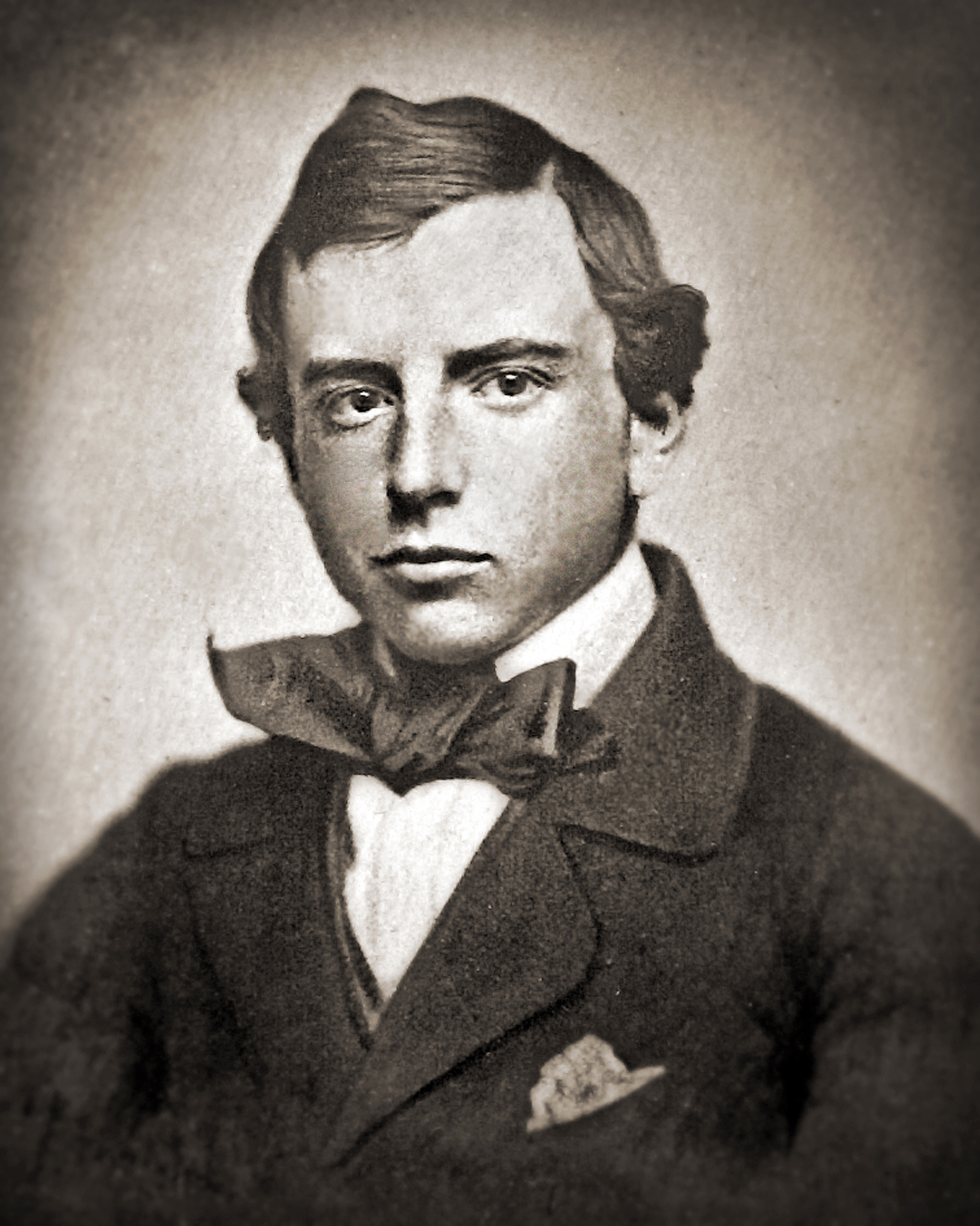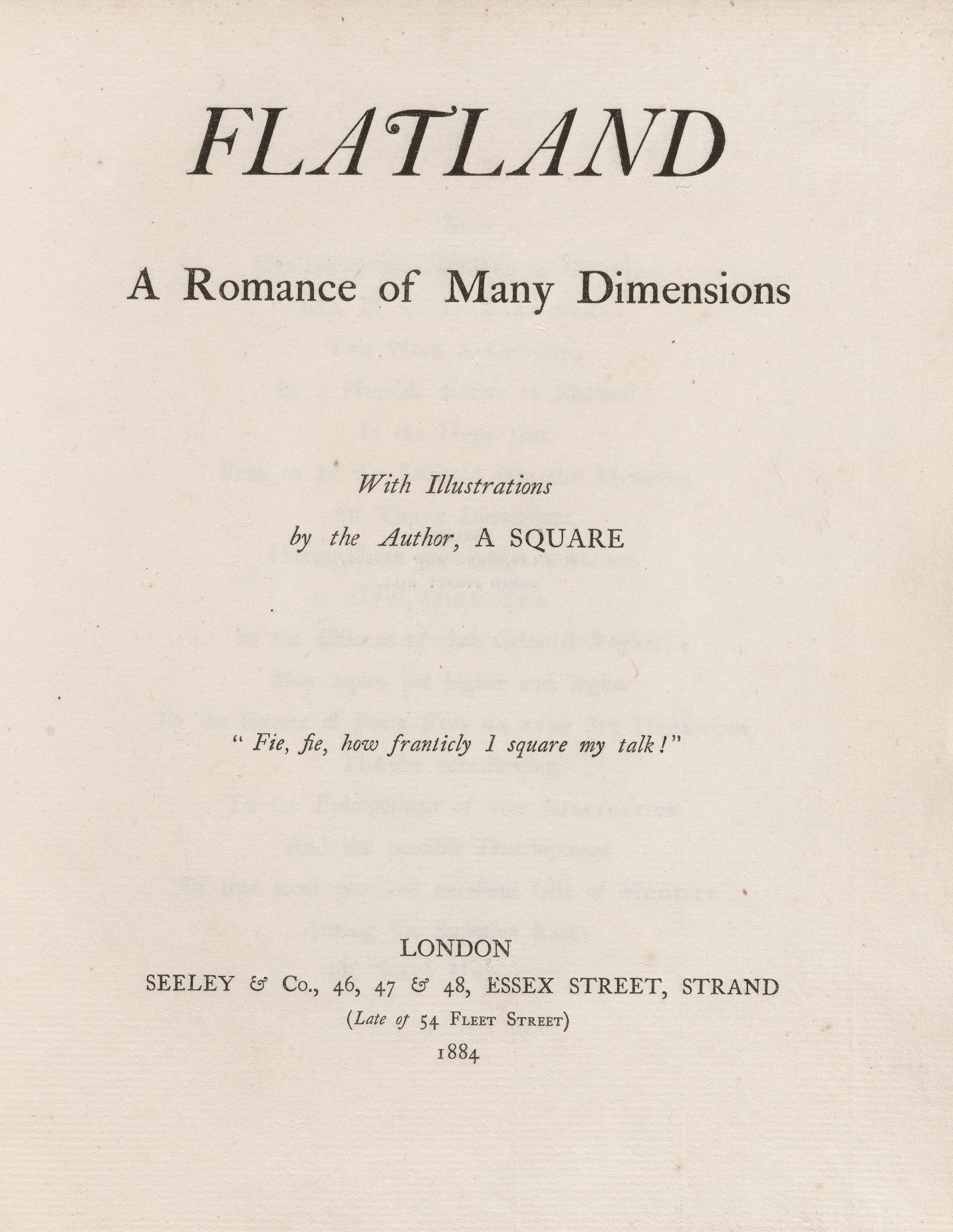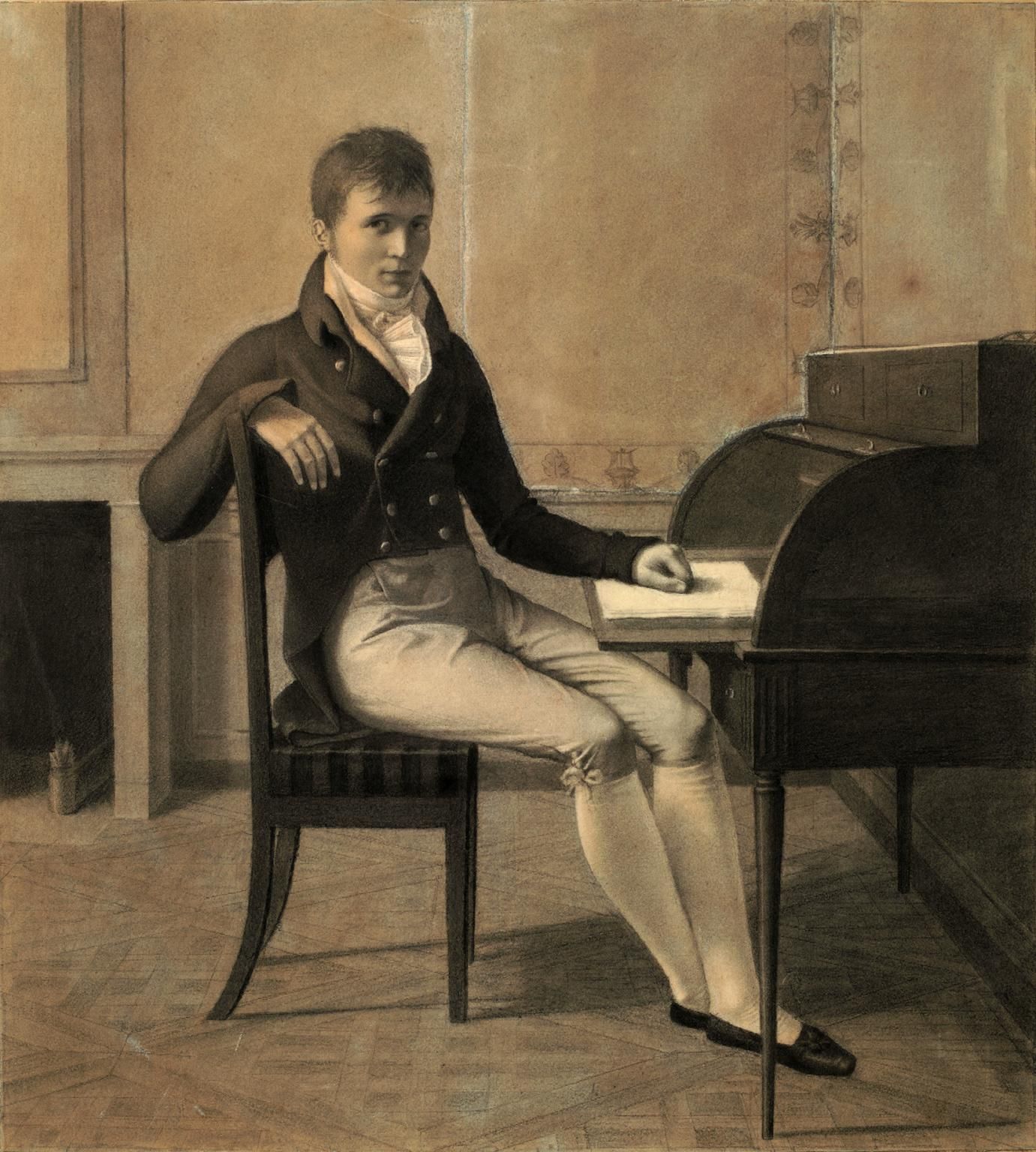|
1838 In Philosophy
1838 in philosophy Events * May 21 - The People's Charter is drawn up in the United Kingdom, demanding universal suffrage * July 15 - Ralph Waldo Emerson delivers the "Divinity School Address" at Harvard University * University of Belgrade Faculty of Philosophy founded Publications * Jacques Boucher de Crèvecœur de Perthes, ''De La Création, Essai sur L'Origine et la Progression des Êtres'', 1st part * S. D. Poisson, ''Recherches sur la probabilité des jugements en matière criminelle et en matière civile'' Births * January 16 - Franz Brentano (died 1917) * February 16 - Henry Adams (died 1918) * February 18 - Ernst Mach (died 1916) * March 14 - Robert Flint (died 1910) * September 2 - Bhaktivinoda Thakur (died 1914) * December 20 - Edwin Abbott Abbott (died 1926) Deaths * March 13 - Poul Martin Møller (born 1794) References {{Reflist Philosophy Philosophy (from , ) is the systematized study of general and fundamental questions, such as those abou ... [...More Info...] [...Related Items...] OR: [Wikipedia] [Google] [Baidu] |
Chartism
Chartism was a working-class movement for political reform in the United Kingdom that erupted from 1838 to 1857 and was strongest in 1839, 1842 and 1848. It took its name from the People's Charter of 1838 and was a national protest movement, with particular strongholds of support in Northern England, the East Midlands, the Staffordshire Potteries, the Black Country, and the South Wales Valleys. The movement was fiercely opposed by government authorities who finally suppressed it. Support for the movement was at its highest when petitions signed by millions of working people were presented to the House of Commons. The strategy employed was to use the scale of support which these petitions and the accompanying mass meetings demonstrated to put pressure on politicians to concede manhood suffrage. Chartism thus relied on constitutional methods to secure its aims, though some became involved in insurrectionary activities, notably in South Wales and in Yorkshire. The People's Chart ... [...More Info...] [...Related Items...] OR: [Wikipedia] [Google] [Baidu] |
Henry Adams
Henry Brooks Adams (February 16, 1838 – March 27, 1918) was an American historian and a member of the Adams political family, descended from two U.S. Presidents. As a young Harvard graduate, he served as secretary to his father, Charles Francis Adams, Abraham Lincoln's ambassador to the United Kingdom. The posting influenced the younger man through the experience of wartime diplomacy, and absorption in English culture, especially the works of John Stuart Mill. After the American Civil War, he became a political journalist who entertained America's foremost intellectuals at his homes in Washington and Boston. During his lifetime, he was best known for ''The History of the United States of America 1801–1817'', a nine-volume work, praised for its literary style, command of the documentary evidence, and deep (family) knowledge of the period and its major figures. His posthumously published memoir, ''The Education of Henry Adams'', won the Pulitzer Prize and went on to be nam ... [...More Info...] [...Related Items...] OR: [Wikipedia] [Google] [Baidu] |
1838
Events January–March * January 10 – A fire destroys Lloyd's Coffee House and the Royal Exchange in London. * January 11 – At Morristown, New Jersey, Samuel Morse, Alfred Vail and Leonard Gale give the first public demonstration of Morse's new invention, the telegraph. * January 11 - A 7.5 earthquake strikes the Romanian district of Vrancea causing damage in Moldavia and Wallachia, killing 73 people. * January 21 – The first known report about the lowest temperature on Earth is made, indicating in Yakutsk. * February 6 – Boer explorer Piet Retief and 60 of his men are massacred by King Dingane kaSenzangakhona of the Zulu people, after Retief accepts an invitation to celebrate the signing of a treaty, and his men willingly disarm as a show of good faith. * February 17 – Weenen massacre: Zulu impis massacre about 532 Voortrekkers, Khoikhoi and Basuto around the site of Weenen in South Africa. * February 24 – U.S. Representatives William J. Graves of Kentu ... [...More Info...] [...Related Items...] OR: [Wikipedia] [Google] [Baidu] |
Poul Martin Møller
Poul Martin Møller (21 March 1794 – 13 March 1838) was a Danish academic, writer, and poet. During his lifetime, he gained renown in Denmark for his poetry. After his death, his posthumously published fiction and philosophical writings were well received. He also devoted several decades of study to classical languages and literature. While serving as a professor at the University of Copenhagen, he was a mentor to the philosopher Søren Kierkegaard. Life and career Møller was born near Vejle and raised on the island of Lolland, where his father served as a pastor. As a young man, his father tutored him in classical languages and literature. In 1812 he enrolled in the University of Copenhagen and studied theology. He also taught religion at a nearby school during this time. He graduated as the valedictorian of his class three and a half years later. In 1815 he published his first poem. After a stint as the tutor of two young counts, he returned to Copenhagen to study classical ph ... [...More Info...] [...Related Items...] OR: [Wikipedia] [Google] [Baidu] |
Edwin Abbott Abbott
Edwin Abbott Abbott (20 December 1838 – 12 October 1926) was an English schoolmaster, theologian, and Anglican priest, best known as the author of the novella ''Flatland'' (1884). Biography Edwin Abbott Abbott was the eldest son of Edwin Abbott (1808–1882), headmaster of the Philological School, Marylebone, and his wife, Jane Abbott (1806–1882). His parents were first cousins. He was born in London and educated at the City of London School and at St John's College, Cambridge, where he took the highest honours of his class in classics, mathematics and theology, and became a fellow of his college. In particular, he was 1st Smith's prizeman in 1861. In 1862 he took orders. After holding masterships at King Edward's School, Birmingham, he succeeded G. F. Mortimer as headmaster of the City of London School in 1865, at the early age of 26. There, he oversaw the education of future Prime Minister H. H. Asquith. Abbott was Hulsean lecturer in 1876. He reti ... [...More Info...] [...Related Items...] OR: [Wikipedia] [Google] [Baidu] |
Bhaktivinoda Thakur
Bhaktivinoda Thakur (, ) (2 September 1838 – 23 June 1914), born Kedarnath Datta (, ), was a Hindu philosopher, guru and spiritual reformer of Gaudiya Vaishnavism who effected its resurgence in India in late 19th and early 20th century and was hailed by contemporary scholars as the most influential Gaudiya Vaishnava leader of his time. He is also credited, along with his son Bhaktisiddhanta Sarasvati, with pioneering the propagation of Gaudiya Vaishnavism in the West and its eventual global spread. Kedarnath Datta was born on 2 September 1838 in the town of Birnagar, Bengal Presidency, in a traditional Hindu family of wealthy Bengali landlords. After a village schooling, he continued his education at Hindu College in Calcutta, where he acquainted himself with contemporary Western philosophy and theology. There he became a close associate of prominent literary and intellectual figures of the Bengali Renaissance, such as Ishwar Chandra Vidyasagar, Bankim Chandra Chattopadhya ... [...More Info...] [...Related Items...] OR: [Wikipedia] [Google] [Baidu] |
Robert Flint
Robert Flint LLD DD (14 March 1838 – 1910) was a Scottish theologian and philosopher who wrote also on sociology. Life Flint was born at Greenburn, Sibbaldbie near Applegarth in Dumfriesshire on 14 March 1838, the son of Grace Johnston (''née'' Paterson) and Robert Flint, a farm overseer. His first school was at Evan Water then he moved to Moffat. In 1852, he entered the University of Glasgow where he distinguished himself (without graduating) in arts and divinity. Having been employed as a lay missionary by the 'Elders' Association of Glasgow', Flint was licensed to preach as a Church of Scotland minister by the Presbytery of Glasgow in June 1858, and for a short time acted as assistant to Norman Macleod, at the Barony Church, Glasgow. He was minister of the East Church, Aberdeen from 1859 to 1862, and of Kilconquhar church in Fife from 1862 to 1864, a small country village parish, which gave him leisure for study, improved by visits to Germany. On the death of James ... [...More Info...] [...Related Items...] OR: [Wikipedia] [Google] [Baidu] |
Ernst Mach
Ernst Waldfried Josef Wenzel Mach ( , ; 18 February 1838 – 19 February 1916) was a Moravian-born Austrian physicist and philosopher, who contributed to the physics of shock waves. The ratio of one's speed to that of sound is named the Mach number in his honour. As a philosopher of science, he was a major influence on logical positivism and American pragmatism. Through his criticism of Newton's theories of space and time, he foreshadowed Einstein's theory of relativity. Biography Mach was born in Chrlice (german: Chirlitz), Moravia (then in the Austrian Empire, now part of Brno in the Czech Republic). His father, who had graduated from Charles-Ferdinand University in Prague, acted as tutor to the noble Brethon family in Zlín in eastern Moravia. His grandfather, Wenzl Lanhaus, an administrator of the Chirlitz estate, was also master builder of the streets there. His activities in that field later influenced Ernst Mach's theoretical work. Some sources give Mach's birthplac ... [...More Info...] [...Related Items...] OR: [Wikipedia] [Google] [Baidu] |
Franz Brentano
Franz Clemens Honoratus Hermann Josef Brentano (; ; 16 January 1838 – 17 March 1917) was an influential German philosopher, psychologist, and former Catholic priest (withdrawn in 1873 due to the definition of papal infallibility in matters of Faith) whose work strongly influenced not only students Edmund Husserl, Sigmund Freud, Tomáš Masaryk, Rudolf Steiner, Alexius Meinong, Carl Stumpf, Anton Marty, Kazimierz Twardowski, and Christian von Ehrenfels, but many others whose work would follow and make use of his original ideas and concepts. Life Brentano was born at , near Boppard. He was son of Christian Brentano, brother of Lujo Brentano, and paternal nephew of Clemens Brentano and Bettina von Arnim, and of Gunda (née Brentano) and Friedrich von Savigny. He studied philosophy at the universities of Munich, Würzburg, Berlin (with Adolf Trendelenburg) and Münster. He had a special interest in Aristotle and scholastic philosophy. He wrote his dissertation in 1862 at Tübingen ... [...More Info...] [...Related Items...] OR: [Wikipedia] [Google] [Baidu] |
Universal Suffrage
Universal suffrage (also called universal franchise, general suffrage, and common suffrage of the common man) gives the right to vote to all adult citizens, regardless of wealth, income, gender, social status, race, ethnicity, or political stance, subject only to certain exceptions as in the case of children, felons, and for a time, women.Suffrage ''Encyclopedia Britannica''. In its original 19th-century usage by reformers in Britain, ''universal suffrage'' was understood to mean only ; the vote was extended to women later, during the |
Siméon Denis Poisson
Baron Siméon Denis Poisson FRS FRSE (; 21 June 1781 – 25 April 1840) was a French mathematician and physicist who worked on statistics, complex analysis, partial differential equations, the calculus of variations, analytical mechanics, electricity and magnetism, thermodynamics, elasticity, and fluid mechanics. Moreover, he predicted the Poisson spot in his attempt to disprove the wave theory of Augustin-Jean Fresnel, which was later confirmed. Biography Poisson was born in Pithiviers, Loiret district in France, the son of Siméon Poisson, an officer in the French army. In 1798, he entered the École Polytechnique in Paris as first in his year, and immediately began to attract the notice of the professors of the school, who left him free to make his own decisions as to what he would study. In his final year of study, less than two years after his entry, he published two memoirs, one on Étienne Bézout's method of elimination, the other on the number of integrals of a finite di ... [...More Info...] [...Related Items...] OR: [Wikipedia] [Google] [Baidu] |
Jacques Boucher De Crèvecœur De Perthes
Jacques Boucher de Crèvecœur de Perthes (; 10 September 1788 – 5 August 1868), sometimes referred to as Boucher de Perthes ( ), was a French archaeologist and antiquary notable for his discovery, in about 1830, of flint tools in the gravels of the Somme valley. Life Born at Rethel, in the Ardennes, he was the eldest son of Jules Armand Guillaume Boucher de Crèvecœur, botanist and customs officer, and of Etienne-Jeanne-Marie de Perthes (whose surname he was authorised by royal decree in 1818 to assume in addition to his father's). In 1802 he entered government employ as an officer of customs. His duties kept him for six years in Italy, but upon his returning in 1811 he found rapid promotion at home, and finally was appointed, in March 1825, to succeed his father as director of the douane (customs office) at Abbeville, where he remained for the rest of his life. Boucher de Perthes as an archaeologist His leisure time was chiefly devoted to the study of what was afterwards c ... [...More Info...] [...Related Items...] OR: [Wikipedia] [Google] [Baidu] |







